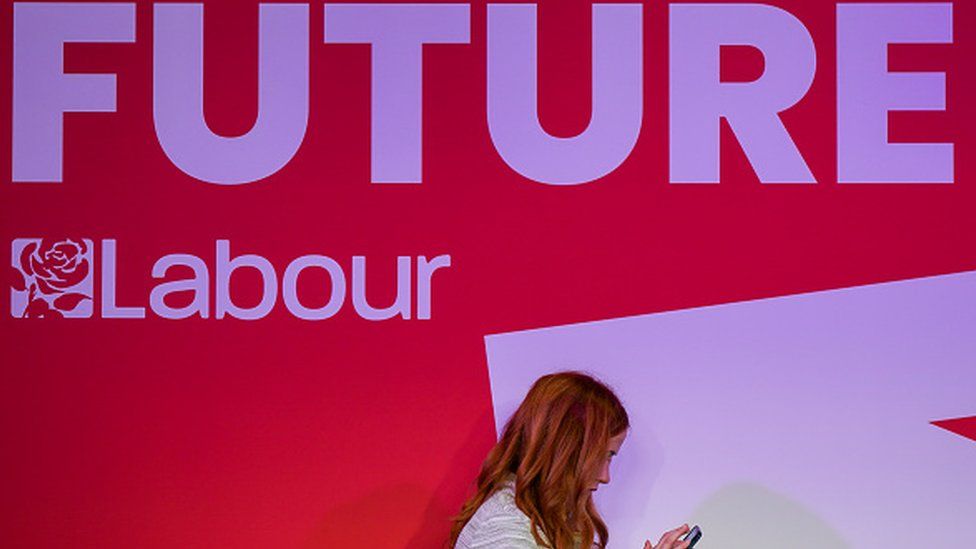ARTICLE AD BOX
 Image source, Getty Images
Image source, Getty Images
By Chris Mason
Political editor, BBC News
"We need to be the smallest possible moving target."
It is a phrase I keep hearing here.
And it is an insight into Labour's mentality at this conference.
Don't create hostages to fortune. Don't score own goals. Don't create easy opportunities for the Conservatives.
It is a mentality that bears the collective weight, from the party's perspective, of a doom-laden history.
Whichever way you look at it, Labour lose a lot of elections.
It is almost 50 years since Labour won an election without a leader called Tony Blair.
There are only four occasions since the Second World War where Labour have taken power from the Conservatives.
"Opportunities don't come along like this very often for the Labour Party," says one senior figure, with a splash of understatement, about the party finding itself - potentially - in a position to win.
"It is like walking a tightrope in a straitjacket. And trying not to fall off," says another senior figure.
Hope and fear
This corner of Liverpool is a sea of cautious smiles. A party daring to believe it can win, but so aware it has thought that before - in 1992, in 2015, to pick just two - only to go on to lose.
"It is beaten-dog syndrome," as one shadow cabinet minister puts it. The party hears the word "election" and instantly fears history repeating itself.
But hang on, there is an understated confidence around too.
Labour leader Sir Keir Starmer is talking about wanting a "decade of national renewal". A decade. That implies winning two general elections, not just one.
One of the architects of New Labour, Lord Mandelson, is touring the conference telling anyone who will listen how much Labour has changed.
He claims the party has switched back "from weird to normal", a line that got a laugh in front of a room full of business leaders.
The description, which former Labour leader Jeremy Corbyn would no doubt regard as gratuitous and personal, came at a dinner of the City of London Corporation, which represents the finance sector.
He joked with his hosts that the Corporation was now "almost to the left of Labour".
The former powerhouses of the party under Mr Corbyn - those on the Left - are banished, vanquished, have even disappeared. Those still around the place say they are "trying to remain relevant".
Sir Keir's approach was described to me recently as being "pragmatically radical".
It is tempting to dismiss this kind of label as typically meaningless Westminster guff. Maybe it is.
What it sought to articulate was a sense of moving cautiously - "painting in the detail" of policy ideas, as one shadow minister put it to me - while also sketching out a longer-term vision, which could amount to significant change.
The plans on housebuilding - and in particular new towns in England - could amount to this if they ever happened.
Rachel Reeves: Biggest risk to economy is five more Tory years
Sir Keir's challenge this autumn looks like this:
Opinion polls suggest the Conservatives are unpopular, even deeply unpopular.
But they also suggest plenty are not convinced by Labour.
"He needs to tell the country more about who he is," says a shadow cabinet minister. "His is a story of aspiration. And we need more policies. Not the vague stuff, stuff we can sell."
This Labour figure, and plenty like them, will hope they leave Liverpool with this.
They know the election draws nearer.
But they also know it is entirely possible they gather again here in a year's time, and polling day has still not happened.

 1 year ago
21
1 year ago
21








 English (US) ·
English (US) ·